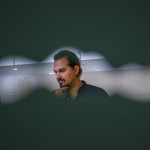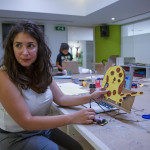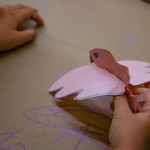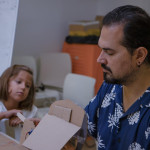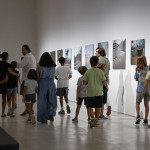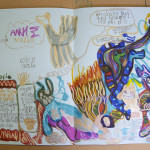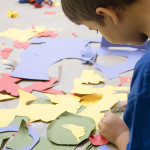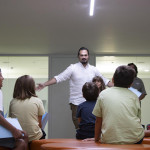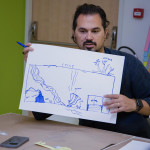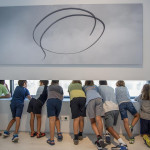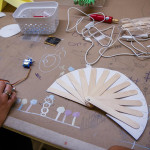A unique four-day educational workshop for children aged 8–10 with artist Driant Zeneli, blending myth, robotics, and imagination was realized from September 2nd until the 5th. Animals, machines, and humans come together, drawing inspiration from Hera’s peacock, a sacred, watchful, and dazzling bird. By building two robotic creatures, a peacock and a dog, the children created a fantastical kingdom where art, science, and fiction merged into a collective artwork.
The children:
- Explored the myth of the peacock and its symbolism
- Discovered the world of robotics through playful experimentation with experts
- Collaborated
- Designed robotic animal characters through drawing, clay modeling, and construction
- Created a living fairy tale set — inhabited by newly imagined robotic creatures
The workshop took place within the framework of the exhibition Why Look At Animals? at EMΣΤ in collaboration with the museum’s Education Department and BrainBots Center Robotics. It is part of The Alternative Atelier, an experimental educational initiative that explores the connection between artistic practices and pedagogical research.
Support by
The project was supported by the Directorate-General for Contemporary Creativity of the Italian Ministry of Culture under the Italian Council program (13th edition, 2024), which aims to promote Italian contemporary art worldwide, in collaboration with the Castromediano Museum of Lecce (Regione Puglia) and the Regional Agency Puglia Culture, the Samdani Foundation in Dhaka, the Paci Foundation in Shkodër, and the Castelbuono Museum (Palermo).
![]()
Artist’s Biography
Driant Zeneli was born in Shkodër, Albania; he lives and works between Turin, Italy and Tirana, Albania. The redefinition of the idea of failure, utopia, and dream stands at the core of Driant Zeneli’s artistic research, as elements that open up possible alternatives. In his films, and video sculpture installations, the representation of power, science, mythology, and fairy tales are interlaced with individual narratives, giving rise to utopias that subvert the natural order of things and challenge dominant perceptions of progress and possibility.

